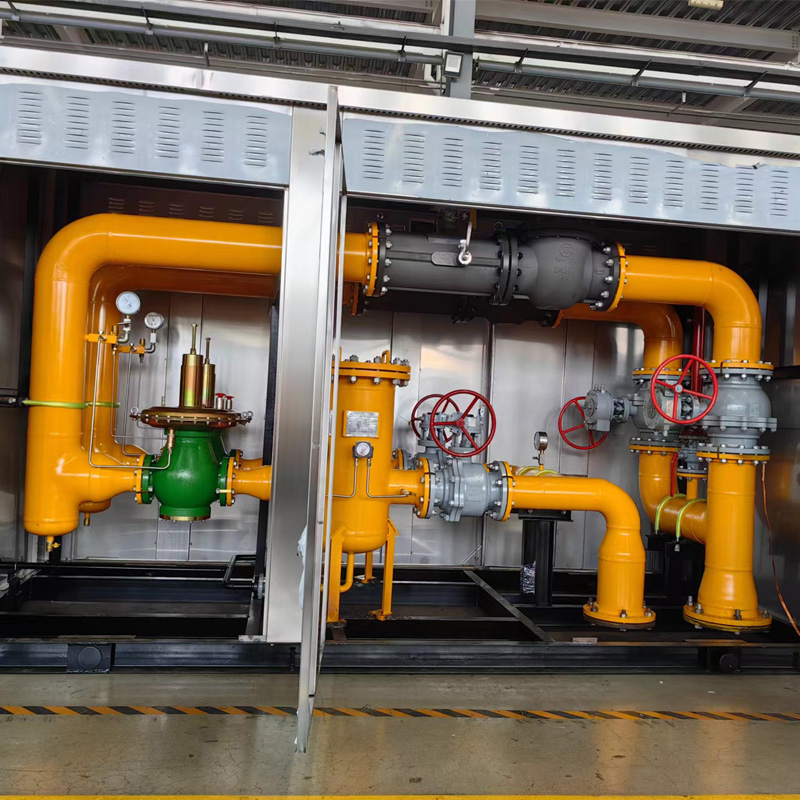
Sep . 15, 2024 22:17
Back to list
Gas Filtration Solutions | Efficient Air and Gas Purification
Gas Filtration An Essential Process in Air Quality Management
Gas filtration is a vital process in various industries and applications aimed at improving air quality, ensuring the safety of operations, and complying with environmental regulations. As industrial activities and urbanization continue to rise, the need for effective gas filtration systems has become increasingly important.
At its core, gas filtration involves the removal of harmful particulate matter and gaseous pollutants from air or other gases. This process is crucial in industries such as manufacturing, chemical processing, and energy production, where the release of contaminants into the atmosphere can pose serious health risks and environmental hazards. Gas filters are designed to capture a wide range of pollutants, including dust, smoke, volatile organic compounds (VOCs), and toxic gases.
One of the most common types of gas filtration systems is the electrostatic precipitator
. This advanced technology uses electrical charges to attract and capture particles from exhaust gases. By ionizing the particles, the precipitator makes them adhere to collection plates, significantly reducing emissions before they are released into the atmosphere. This method is particularly effective in coal-fired power plants and industrial furnaces, where large volumes of flue gases are produced.gas filtration

Another common technology is activated carbon filtration, which is particularly adept at removing odors and VOCs from the air. Activated carbon filters work through adsorption, where molecules of pollutants adhere to the surface of the carbon granules. This method is frequently utilized in air purifiers and HVAC systems to enhance indoor air quality, ensuring a healthier environment for occupants.
In recent years, advancements in nanotechnology have led to the development of more efficient gas filtration materials. Nanofibers created through electrospinning provide a higher surface area and enhanced capturing efficiency compared to traditional filters. These materials can trap smaller particles that are often more harmful to human health, therefore increasing the safety and effectiveness of filtration systems.
The implementation of gas filtration systems is not only beneficial from a health perspective but also contributes to sustainability efforts. By reducing harmful emissions, companies can lower their carbon footprint and comply with increasingly stringent environmental regulations. Furthermore, effective gas filtration can enhance operational efficiency by preventing the buildup of contaminants that can damage equipment and reduce performance.
In conclusion, gas filtration plays a crucial role in managing air quality and protecting public health. With ongoing advancements in filtration technology and materials, it is imperative for industries to invest in effective gas filtration solutions. This not only aids in regulatory compliance but also supports global efforts toward a cleaner and healthier environment. As urbanization and industrial activities continue to grow, the importance of gas filtration will only escalate, making it a fundamental aspect of sustainable development and pollution control.
Next:
Latest news
-
Safety Valve Spring-Loaded Design Overpressure ProtectionNewsJul.25,2025
-
Precision Voltage Regulator AC5 Accuracy Grade PerformanceNewsJul.25,2025
-
Natural Gas Pressure Regulating Skid Industrial Pipeline ApplicationsNewsJul.25,2025
-
Natural Gas Filter Stainless Steel Mesh Element DesignNewsJul.25,2025
-
Gas Pressure Regulator Valve Direct-Acting Spring-Loaded DesignNewsJul.25,2025
-
Decompression Equipment Multi-Stage Heat Exchange System DesignNewsJul.25,2025

